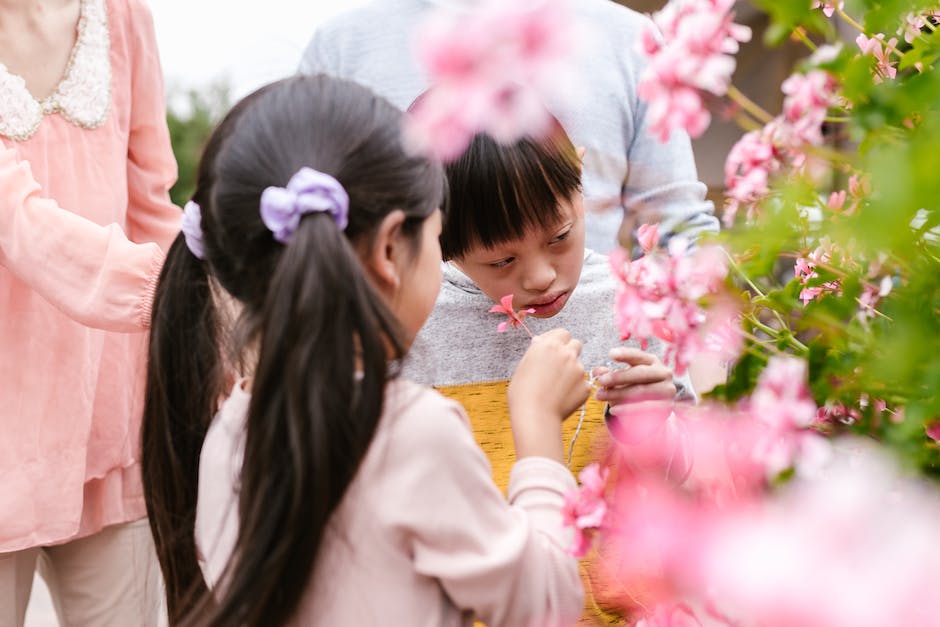Our family and home environment significantly shape us, making us who we are and informing how we interact with the world. A fundamental force in this process is the fabric of various familial relationships woven with threads of communication, work-life balance, traditions, parenting styles, and sibling connections. Through exploring the nuances of these key themes, we embark on a journey to decode the complex dynamics of families and relationships that hold immense importance in our lives. To forge healthier, more fulfilling relationships with our family members, we need to invest in understanding the elements that bind us together and sometimes pull us apart. Our aim here is to generate a well-rounded appreciation of these fundamental topics, equipping you with practical strategies to navigate effectively through your family life.
The Importance of Communication in Families
In this fast-paced digital world, building strong family communication can often feel like a daunting task. But do not fret, with a few tried-and-true tips, families can indeed enhance their communication resulting in joyous relationships, respectful exchanges, and mutual understanding.
A harmonious family life kicks off with open communication as its cornerstone. A golden rule to remember is that open and honest communication should always be encouraged in families. Foster an environment where everyone feels heard. Encourage children to voice their feelings and thoughts, and also ensure adults do the same. Expressing emotions and thoughts can help avoid misunderstandings and strengthen bonds between family members.
Adding onto this, another crucial aspect is active listening which, believe it or not, is a skill that needs to be nurtured and cultivated. Be fully present when a family member is communicating. That means putting down the electronic gadgets, maintaining eye contact and truly listening. Show empathy and understanding, this assures the speaker that their words, feelings and emotions are valued.
It might seem mundane but scheduling regular family meetings or discussions can significantly impact the level of communication for a family. This provides a dedicated time for interaction, especially in the case of busy schedules. Discuss anything and everything from day-to-day activities to future goals and plans of each family member. It is a casual forum to address concerns, give kudos, and exchange laughs.
Introducing fun communication games or exercises may also be a helpful way to break down barriers and improve communication. For example, sentences completion activities, where each family member completes a sentence such as “I feel happy when…” can be both fun and revealing.
Remember patience is key! Habits aren’t formed overnight, they take time and constant efforts. It’s completely normal for a few bumps along the road towards improving family communication. When conflicts occur, they should be perceived as opportunities for growth and learning.
By adopting these pointers, communication within the family can improve drastically. When everyone feels heard and valued, they are more likely to reciprocate the same feelings, and the bond between family members grows stronger, healthier, and deeper. In the end, that’s what families are about- feeling loved, acknowledged, understood, and most importantly, at home.

Balancing Family and Career
To maintain a healthy work-life balance as a parent, setting boundaries becomes inevitable. Inevitably, there will be times when work seeps into the home, but creating strict work hours and not exceeding them can be an effective way to keep things from spiraling out of control. Having boundaries informs children about the concept of time management and empowers them to respect other people’s time and commitments.
Another potential game-changer is utilizing available resources effectively. This might mean hiring a babysitter, enlisting neighbors for after-school care, or sharing responsibilities with your partner or elder children. By not trying to manage everything single-handedly, parents can not only reduce overwhelming workloads but also allow children to develop a sense of responsibility and teamwork.
Embracing technology as a tool rather than a distraction can eventually yield positive results. Numerous apps can help in delegating tasks, planning meals, scheduling events, and staying organized overall. Let technology aid in daily routines and planning to better manage time and resources.
Practicing self-care is far from selfish; it’s vital for mental well-being and becoming a more patient and understanding parent. It varies for every individual – it can be as simple as an evening stroll, reading a book, meditating, or pursuing a hobby. So, remember to carve out time for self-love and relaxation regularly.
One of the best presents parents can give their children is their presence. Quality time with children nurtures their self-esteem and fosters their overall development. It can be as mundane as cooking together or reading bedtime stories, but what matters is being together and being present genuinely.
Setting realistic expectations goes a long way in managing work-life balance. It’s essential for parents to understand that perfection is a myth, and it’s okay to have untidy rooms and unfinished chores at times. Instilling this understanding in children encourages them to accept and celebrate imperfections.
And lastly, never hesitate to ask for help. Whether professional counseling or just a friend to vent, getting external support and advice offers fresh perspectives and encourages open-mindedness.
Absolutely, balancing a demanding job and a family is tough. But by implementing comprehensive strategies and fostering a healthier family environment, it’s more than possible to have a fulfilling professional life and cultivate a loving home at the same time. Remember, the essence lies in balancing, not juggling.

The Value of Family Traditions and Rituals
The Power And Purpose of Family Traditions And Rituals
Picturing the warmth of the fireplace on a chilly Christmas Eve, with the aroma of freshly baked cookies filling the room, makes one realize the magic of family traditions. It’s not just about these nostalgic moments, though. Family traditions and rituals play an integral role in shaping the family dynamics, and they should be nurtured and celebrated.
Family traditions help create a sense of identity and belonging. When everyone in the family participates in a familiar activity, it instills a sense of unity and togetherness. This bond tightly knits a family together, strengthening their relationships.
Kids especially thrive on routine and predictability; family rituals provide just that. It gives them something to look forward to. Additionally, participating in family traditions and rituals could significantly boost their self-esteem. It allows them to feel valued, contributing to their overall emotional wellbeing.
Family traditions can also act as an excellent educational tool. Cooking a family recipe with grandma, for instance, is not only enjoyable but it also helps children learn about their cultural background, understand their heritage and acquire new skills. This knowledge base eventually helps in shaping children’s identity and understanding of the world.
Moreover, family traditions have a profound impact on creating lasting memories. These aren’t just routines; they are moments that children will remember and cherish for the rest of their lives. They may even continue these traditions with their families in the future, ensuring that the chain remains unbroken.
As life gets busier and more chaotic, carving out time specifically for family traditions can be a calming sanctuary. These rituals can offer you and your family a safe haven to decompress, connect, and enjoy some quality time together. Additionally, they provide an opportunity to slow down and appreciate life’s simple pleasures, taking a break from the hustle and bustle of everyday life.
Lastly, family traditions can serve as an anchor in challenging times. The comforting familiarity of family rituals can provide much-needed stability during periods of change or uncertainty. This framework gives family members something to depend upon, ensuring they never feel completely adrift.
Embrace family traditions and rituals wholeheartedly, for they are the invisible bond holding the family together. They foster a sense of continuity, strengthen relationships, and create unforgettable memories. So, whether it’s a weekly family game night, annual camping trip, or baking holiday cookies together, these traditions are worth preserving. They are the touchstones of love and commitment that mark and celebrate the passage of time in our family’s life. So keep them alive, for they are the heart and soul of what we fondly call, ‘family’.

Effective Parenting Styles and Approaches
Promoting a Positive Discipline Environment
Discipline is a significant part of parenting – a terrain all parents have to navigate as part of raising responsible and considerate human beings. However, it’s hugely important to differentiate discipline from punishment. Discipline should be a way of teaching, not instilling fear. Therefore, the focus should always be on promoting positive behavior and instructing children about the potential consequences of their negative actions.
Creating a positive discipline environment allows children to recognize that while their actions may be unacceptable, they are still loved and accepted. This approach nurtures self-discipline, guiding children on how to control their actions and make better decisions in the future, fostering adaptability and resilience along the way.
Encouraging Responsibility and Independence
As parents, it’s natural to want to keep an eagle-eye on your little ones, ensure their safety, and come to their rescue whenever they encounter difficulty. However, it is also crucial to foster independence and responsibility in children from a young age. The goal shouldn’t be to solve problems for children, but rather to guide them in solving problems themselves. Whether it’s tying their shoelaces, tidying their rooms, or completing their homework, every single task contributes significantly to their overall independence and sense of responsibility.
Cultivating Healthy Family Relationships Through Family Meals
Often, the simplest traditions make the most significant impact. Sitting down as a family to share a meal is a tradition that is as old as time, and for good reason. Family meals have been scientifically proven to enhance family relationships. This simple routine provides an opportunity for everyone to catch up, share stories, and impart wisdom, creating a sense of unity and belonging in the family.
Role Modeling Healthy Relationship and Coping Mechanisms
Children observe and pick up more from us than we realize. They learn how to interact with others and deal with life’s ups and downs by witnessing how we navigate relationships and handle stress. It is more about actions than words. To teach children healthy relationship skills and coping mechanisms, we need to model these behaviors proactively. This could involve demonstrating empathy, managing emotions positively, practicing patience, and respecting boundaries.
Involve Kids in Family Decisions
Being included in family decisions gives youngsters a sense of respect, participation, and value. Introducing children to decision-making processes doesn’t only make them feel important, but it also encourages critical thinking skills and enhances their sense of responsibility. This involvement needs to be age-appropriate – whether deciding on the color of the new living room couch or discussing the next family vacation spot.
Supporting Kids’ Passions and Interests
Every child is unique – so are their interests and passions. Encouraging children to explore these passions sends the message that their individuality is acknowledged, loved, and respected. This support boosts their self-esteem and sense of identity, and also provides an excellent opportunity for parents to bond with their children over shared or new experiences.
In conclusion, parenting styles involve a mix of strategies and values. Promoting a healthy family relationship is not a straightforward recipe, but a journey of constant learning, adapting, and growing together. It is about being present, being supportive, and, most importantly, nurturing a love-filled home environment that forms the pillar for your growing child.

Fostering Strong Sibling Relationships
Building Strong Sibling Bonds: Inclusion, Hobbies, and Celebrations
Creating strong relationships among siblings goes beyond communication, family discussions, traditions, and discipline. You’re setting the foundation for lifelong friends who will support each other in ways no one else can, through shared experiences and mutual understanding.
Involvement in decision-making can be a game-changer in fostering sibling relationships. In a family, everyone has a significant role to play. Involve kids in making some family decisions. It might be about planning a vacation, picking family movie nights, or preparing the weekly dinner menu. These shared decisions can enhance their sense of value and ownership. In the process, siblings end up collaborating, co-operating and respecting each other’s viewpoints.
Nurturing the unique interests and passions of each child is another powerful strategy. It’s helpful for a parent to identify and appreciate individual qualities in every child. If one child’s strength is poetry and another’s is basketball, celebrate each one separately and wholeheartedly. This makes children feel significant and appreciated for their unique talents. When siblings see their parents treating everyone fairly, reciprocal respect among siblings is cultivated.
Supporting sibling teams can also be highly beneficial. Find a hobby or activity that all kids can engage in together – be it cooking, painting, gardening, or cycling. Even better, initiate sibling projects where they can work towards a common goal. It strengthens their team spirit, teaches them negotiation skills, and helps them value the happiness found in shared achievement.
The magic of celebrations shouldn’t be undervalued either. Celebrate birthdays, good report cards, but also regular days, ‘just because’. Little things matter the most. A ‘Breakfast of Champions’ for finishing house chores or an ‘Ice-cream Sunday’ to celebrate making through the homework can create a bonding tradition among siblings. Small, frequent celebrations bring joy and a sense of achievement in kids. These happy occasions also offer opportunities for siblings to appreciate each other sincerely.
The relationship between siblings is a beautiful journey of shared stories, laughter, secrets, and sometimes, arguments. But all these are precious stones paving the way towards a lifelong bond of friendship, love, and respect. And remember, as parents, it’s not about creating picture-perfect moments, but authentic, meaningful experiences that will build these eternal bonds. Happy parenting!

As we navigate through the currents of life, it’s important to remember that our family and relationships are our safe harbor. Its health and vitality require continual effort, understanding, and adaptation. From honing communication dynamics, striking a balance between work and family, cherishing traditions, understanding the impact of varied parenting styles, to fostering healthy sibling relationships, each theme is an imperative cog in the wheel of a well-rounded family life. In every aspect, it’s essential to remember that there’s no one-size-fits-all approach. Each family’s uniqueness is its greatest strength, and understanding this can help foster healthier, happier relationships that ultimately build a peaceful, nurturing home environment. May this voyage for understanding family and relationships bring enhanced unity, love, and harmony in your lives.

